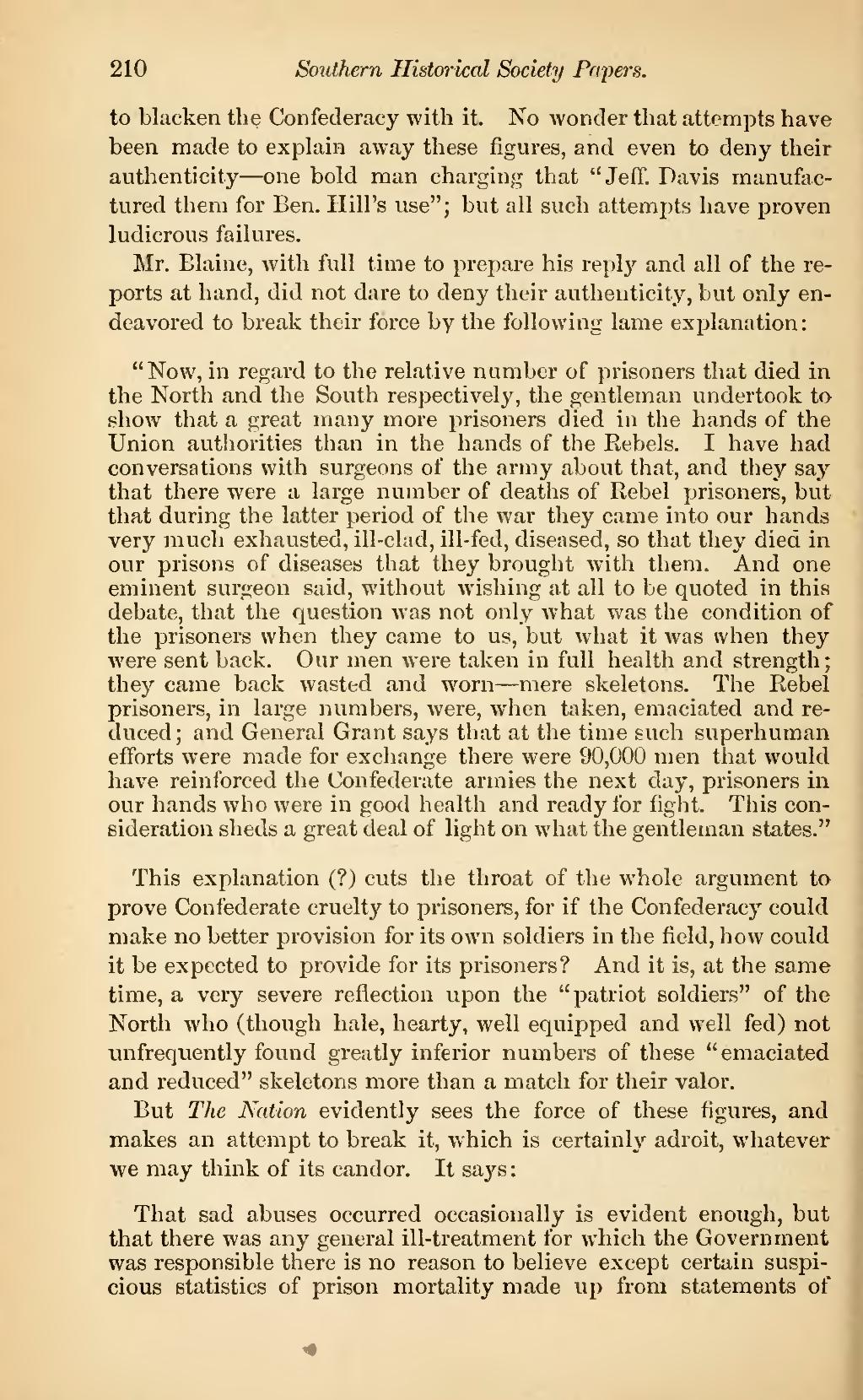to blacken the Confederacy with it. No wonder that attempts have been made to explain away these figures, and even to deny their authenticity—one bold man charging that "Jeff. Davis manufactured them for Ben. Hill's use"; but all such attempts have proven ludicrous failures.
Mr. Blaine, with full time to prepare his reply and all of the reports at hand, did not dare to deny their authenticity, but only endeavored to break their force by the following lame explanation:
"Now, in regard to the relative number of prisoners that died in the North and the South respectively, the gentleman undertook to show that a great many more prisoners died in the hands of the Union authorities than in the hands of the Rebels. I have had conversations with surgeons of the army about that, and they say that there were a large number of deaths of Rebel prisoners, but that during the latter period of the war they came into our hands very much exhausted, ill-clad, ill-fed, diseased, so that they died in our prisons of diseases that they brought with them. And one eminent surgeon said, without wishing at all to be quoted in this debate, that the question was not only what was the condition of the prisoners when they came to us, but what it was when they were sent back. Our men were taken in full health and strength; they came back wasted and worn—mere skeletons. The Rebel prisoners, in large numbers, were, when taken, emaciated and reduced; and General Grant says that at the time such superhuman efforts were made for exchange there were 90,000 men that would have reinforced the Confederate armies the next day, prisoners in our hands who were in good health and ready for fight. This consideration sheds a great deal of light on what the gentleman states."
This explanation (?) cuts the throat of the whole argument to prove Confederate cruelty to prisoners, for if the Confederacy could make no better provision for its own soldiers in the field, how could it be expected to provide for its prisoners? And it is, at the same time, a very severe reflection upon the "patriot soldiers" of the North who (though hale, hearty, well equipped and well fed) not unfrequently found greatly inferior numbers of these "emaciated and reduced" skeletons more than a match for their valor.
But The Nation evidently sees the force of these figures, and makes an attempt to break it, which is certainly adroit, whatever we may think of its candor. It says:
That sad abuses occurred occasionally is evident enough, but that there was any general ill-treatment for which the Government was responsible there is no reason to believe except certain suspicious statistics of prison mortality made up from statements of
